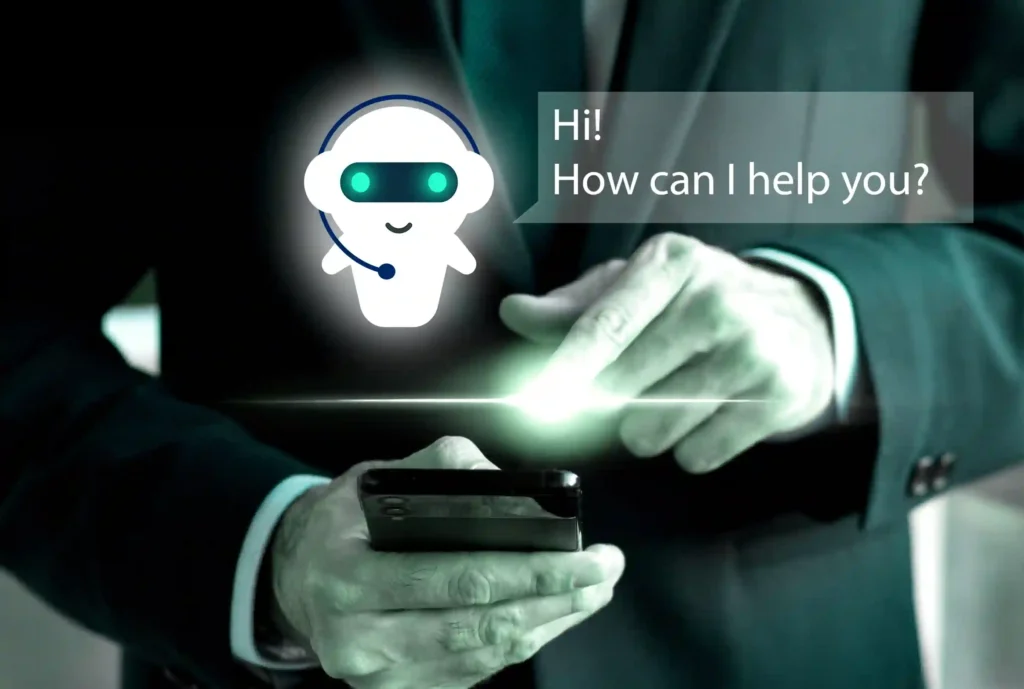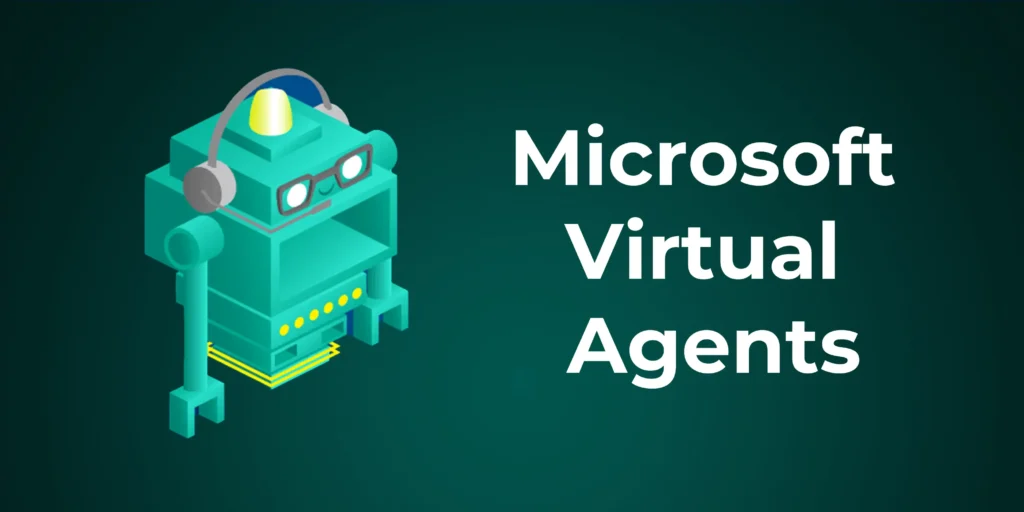With its intelligent and efficient capabilities, Microsoft Virtual Agents are transforming the customer support solutions industry. Customers requesting assistance get a smooth and customized experience from these AI chatbot-powered virtual customer care representatives.
Introduction: Virtual Agents
Businesses in modern times are always looking for new and creative ways to improve the customer service they provide. Microsoft Virtual Agents is one such innovative technology that has been increasing in popularity. These smart chatbots are changing the way businesses engage with their customers by providing on-time, personalized support always.

Microsoft Virtual Agents are a scalable approach for businesses to improve customer support services. They are made to manage a variety of consumer inquiries and difficulties. These virtual agents can respond to questions in natural language, provide relevant details, and even take action to address client issues using advanced AI algorithms.
The Impact of Virtual Agents
Microsoft Virtual Agents, who provide personalized interaction and quick query resolution, have completely changed the customer support industry. These virtual assistants have a big impact on improving consumer engagement and experience.
Microsoft Virtual Agents provides a more engaging and quick customer care service using AI technologies. They understand clients’ needs based on past experiences, offer fast support and respond to inquiries.
Customers are more satisfied when Microsoft Virtual Agents are used because they get quick and precise responses to their questions. Because they value the customized attention they are given, clients become more engaged and loyal as a result.
Microsoft Virtual Agents have an important effect on the customer experience because they improve customer happiness and engagement by simplifying communication processes, providing customized answers, and ensuring fast inquiry responses.
How do Microsoft Virtual Agents Work?
Microsoft Virtual Agents operate by understanding the purpose of the user and responding accordingly. A virtual agent uses natural language processing (NLP) to understand user input and extract relevant data when a user interacts with it.
The virtual agent makes a suitable response after collecting the necessary data from its repository or other sources in combination with this understanding. As a result of interactions, these virtual agents get experience in handling a variety of requests and responsibilities.
Key Features of Microsoft Virtual Agents:
24/7 Availability: Microsoft Virtual Agents are always available, helping businesses to provide support to their client’s day or night, in comparison to human agents. This ensures a constant and consistent level of service, which increases client satisfaction.
Scalability: Virtual agents are very scalable since they can manage multiple conversations at once. Businesses don’t need to spend large overhead costs to hire more virtual agents to handle demand and increase inquiries from customers.
Cost-effectiveness: Microsoft Virtual Agents help businesses reduce operational costs related to customer assistance by automating routine tasks and reducing the requirement for human interaction. This makes it possible for businesses to invest in other aspects of their operations and manage resources more effectively.
Integration with Current Systems: Microsoft Virtual Agents can be easily connected to current company systems, including knowledge bases, scheduling systems, and customer relationship management (CRM) software. They can access important data and give users more precise and customized support.
Use Cases of Microsoft Virtual Agents
Customer Support: Virtual agents can handle a wide range of client requests, such as product information, troubleshooting, billing queries, and order tracking. They can guide users via step-by-step processes, provide relevant information, and solve difficult problems.
Lead Generation and Qualification: By communicating with website visitors, virtual agents can collect leads, analyze potential customers, and assign them to the right salespeople. By asking relevant questions and providing valuable information, they help businesses identify potential customers and encourage them via the sales funnel.
Employee support: Virtual agents are not restricted to external consumer contacts; they can also help staff with internal issues, HR processes, IT assistance, and training. By simplifying routine tasks and providing self-service options, they improve employees to be more productive and efficient.
Appointment Scheduling: Virtual agents may simplify the appointment scheduling process by interacting with customers, checking availability, and booking appointments in real-time. This reduces the load on administrative staff and ensures a smooth and convenient booking experience for customers.
Feedback Collection: Virtual agents can actively participate with customers to gather feedback, ratings, and reviews. By analysing this data, businesses get helpful information about customer satisfaction phases, identify areas for improvement, and based on the data enhance their products and services.
The Future of Customer Interaction
The future of customer engagement has been changed by revolutionary virtual agent technologies, based on AI improvements in customer service tools. Microsoft Virtual Agents have reached the center of this innovation, providing personalized and efficient customer support experiences.
These virtual agents use AI to interpret and respond to client queries in a human-like way, providing real-time assistance and problem-solving. They are provided with advanced natural language processing capabilities, providing effortless interaction with customers through multiple platforms.
The use of digital transformation by businesses will boost the importance of Microsoft Virtual Agents in improving customer interactions. These innovative technologies are completely changing the way businesses interact with their clients, from proactive involvement to predictive analytics, and they are establishing new standards for outstanding customer service.
FAQ
Virtual agents utilize advanced natural language processing (NLP) and machine learning algorithms to understand user intent and provide relevant responses. They analyze user input, retrieve knowledge from their repository or external sources, and formulate appropriate responses.
Some key features of Microsoft Virtual Agents include 24/7 availability, scalability, cost-effectiveness, personalization, and seamless integration with existing systems such as CRM software and knowledge bases.
Yes, Microsoft Virtual Agent is generally safe to use. It’s a tool provided by Microsoft to assist users with various tasks and inquiries related to Microsoft products and services.
However, as with any online service, it’s important to be cautious about sharing sensitive personal information. Make sure you’re interacting with the official Microsoft Virtual Agent and not a fake or malicious version.
Conclusion
In conclusion, Microsoft Virtual Agents are transforming customer service by providing companies with a customized, scalable, and affordable way to interact with their customers.
Businesses can provide smooth and effective customer care experiences that increase customer happiness and loyalty by using AI. Microsoft Virtual Agents can completely change how businesses communicate with their customers in the future as soon as they adopt this technology and continue coming up with new ideas.
